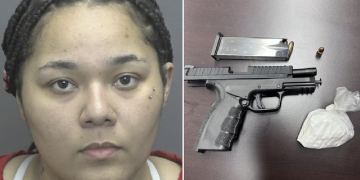Indianapolis, Indiana – When it comes to regulating how and when police officers can engage in pursuits, the Indiana Law Enforcement Training Board is in the process of putting in place rules that are more stringent.
“It all has to do with protection of the community,” said Timothy Horty, executive director of the Indiana Law Enforcement Academy.
At the beginning of the year, the law enforcement training board’s uniform statewide policy became active. This policy, which establishes minimum standards for law enforcement agencies across the state, was put into effect. The policy outlines the circumstances under which law enforcement officers are allowed to engage in pursuits.
“The overall concept is: does the outcome outweigh the consequences?” Horty said. “That’s the million-dollar question that police officers and administrators have to make that determination.”
New elements, such as the severity of the threat posed by the fleeing driver and the current state of the traffic, will be taken into account.
“How egregious is the offense?” Horty asked. “Is the offense worth putting folk in danger?”
The majority of state agencies had their own sets of policies, but the new rules provide guidance that is consistent across the entire state.
“Each agency can make their own policy and make them more astringent,” Horty said.
The Indianapolis Metropolitan Police Department is not going to change its policy because it was already more restrictive than the policy that was passed by the law enforcement training board.
“We’re always reviewing the policy to see if we need to make any changes, but we don’t need to make any changes based on the policy enacted earlier this week,” Lt. Shane Foley said.
According to the policy that is currently in place, any IMPD pursuit will result in an investigation by internal affairs.
The people who came up with the uniform policy have high hopes that it will make the community a safer place.
“I think it helps protects the officers. It sets a minimum standard,” Horty said. “It also protects the citizen because it draws to the attention of the officer that he or she always has to operate with due regard.”




















































































